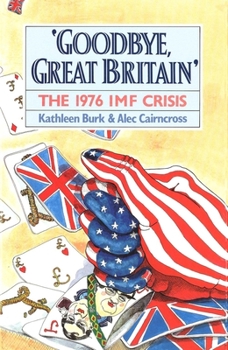Goodbye, Great Britain: The 1976 IMF Crisis
Select Format
Select Condition 
Book Overview
In this authoritative and gripping book--the first full account of the 1976 International Monetary Fund crisis--Kathleen Burk and Alec Cairncross peel back the surface of the most searing economic crisis of postwar Britain to reveal its historical roots and contemporary context. During the spring of 1976, the plummeting value of the British pound against the U.S. dollar triggered a traumatic economic and political crisis. International confidence in the pound collapsed; an article in the Wall Street Journal, headlined "Good-bye, Great Britain," urged investors to get out of sterling. Refused aid by the London and New York markets, the Labour Government under Prime Minister James Callaghan was forced to turn for help to the IMF--a highly unusual move for a developed Western economy. Fearing that the economic crisis would drive Britain into a left-wing siege economy which would endanger NATO and the EEC, the United States and Germany used the IMF loan as a means to force Britain to make major domestic policy changes; when the IMF mission arrived in London in November 1976, it was announced that the price for the loan included deep cuts in domestic spending. Burk and Cairncross uncover the maneuvers of the Labour Government to evade IMF conditions. They also examine underlying economic factors, the political agenda, the rise of monetarist ideas, and the Keynesian response. Juxtaposing narrative with analysis, they provide surprising answers to critical questions and reveal how the breakdown of the post-war consensus on the macroeconomic management paved the way for the triumph of Thatcherism.
Format:Hardcover
Language:English
ISBN:0300057288
ISBN13:9780300057287
Release Date:March 1992
Publisher:Yale University Press
Length:256 Pages
Weight:1.35 lbs.
Dimensions:1.1" x 6.3" x 9.5"













